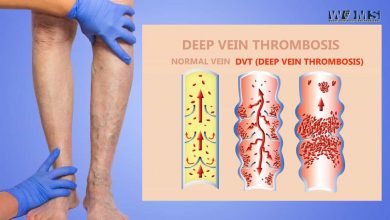Dana Behavioral Health on Overcoming Barriers to Effective Medication Management

Effective medication management is a cornerstone of maintaining health, especially for individuals with chronic conditions or those juggling multiple prescriptions. By ensuring patients adhere to prescribed regimens, healthcare providers can reduce complications, improve overall well-being, and foster trust in patient-provider relationships.
However, barriers such as financial constraints, language differences, and the complexity of treatment plans often hinder proper adherence. Technology has emerged as a game-changer, offering tools like mobile apps, intelligent pill dispensers, and telemedicine to support individuals in managing their medications. When patients successfully overcome these challenges, the benefits are far-reaching, from enhanced quality of life and reduced healthcare costs to fewer crises for caregivers.
A collaborative, team-based approach further amplifies these outcomes, ensuring that patients receive continuous support and personalized care. Below, the professionals at Dana Behavioral Health dive into the importance of medication management, the barriers that complicate it, and the practical solutions that can make a lasting difference.
Identifying Common Obstacles in Medication Management
Effective medication management is crucial for patient health, but several obstacles often hinder its success. One common challenge is patient non-adherence, where individuals fail to follow prescribed regimens due to forgetfulness, confusion about dosages, or lack of understanding of the medication’s purpose. Another obstacle is the complexity of treatment plans, especially for patients with multiple chronic conditions. Managing multiple medications can lead to confusion, interactions, or missed doses.
Additionally, cost and access to medications are persistent barriers, as some patients may struggle with high out-of-pocket expenses or lack insurance coverage. Healthcare provider communication also plays a role—insufficient counseling or unclear instructions can leave patients uncertain about how or when to take their medications. Finally, stigma or fear surrounding certain medications, such as psychiatric drugs or opioids, may prevent patients from seeking proper treatment.
Overcoming these obstacles requires tailored strategies, clear communication, and improved access to healthcare resources.
Strategies for Improving Patient Education and Understanding of Medication Management
Effective patient education is crucial for improving medication management and ensuring better health outcomes. One key strategy is simplifying complex medical information by using clear, non-technical language, visual aids, and written materials that reinforce verbal instructions. Tailoring education to individual needs, such as considering cultural and literacy levels, helps patients grasp essential details about their medications. Interactive tools, like medication calendars or mobile apps, can remind patients of dosages and schedules, making adherence easier.
What’s more, involving family members or caregivers in the education process can enhance support and accountability. Regular follow-up appointments allow healthcare providers to assess patient understanding, answer questions, and address concerns, ensuring patients are well-equipped to manage their medications. Finally, fostering open communication between patients and providers builds trust. It encourages patients to speak up about any difficulties or side effects, allowing for timely adjustments to treatment plans and improving overall medication adherence.
Addressing Side Effects and Medication Concerns
Addressing side effects and medication concerns is a critical aspect of adequate healthcare. Patients often worry about the potential side effects of prescribed medications, which can range from mild symptoms like dizziness to more severe issues such as allergic reactions or organ damage. Open communication between healthcare providers and patients is critical to managing these concerns. Doctors should thoroughly explain the possible side effects of medications, along with their benefits, and guide how to minimize risks. It’s equally important for patients to feel comfortable sharing their experiences with side effects, as early intervention can prevent complications.
Healthcare providers can also explore alternative treatments or adjust dosages to suit individual needs better. Regular follow-ups and monitoring are essential for ensuring patient safety and comfort, ultimately leading to improved adherence to prescribed regimens and better health outcomes. Addressing these concerns with empathy and transparency builds trust and promotes patient well-being.
Leveraging Technology for Better Medication Management
Leveraging technology for better medication management is transforming the way patients and healthcare providers approach treatment. Digital tools like mobile apps, electronic health records (EHRs), and automated reminders are making it easier for individuals to track their medications, dosages, and schedules. These technologies help reduce the risk of missed doses, medication errors, and harmful drug interactions by providing real-time alerts and notifications.
Telemedicine platforms also allow healthcare providers to remotely monitor patients’ medication adherence and adjust prescriptions as needed, ensuring more personalized care. Electronic pill dispensers and innovative packaging also simplify the process by organizing doses and providing visual or auditory cues to patients.
By integrating these technological advancements, both patients and healthcare professionals can work together to improve medication adherence, enhance health outcomes, and ultimately reduce healthcare costs. This approach represents a proactive shift toward more efficient, patient-centered care in modern medicine.
Building a Supportive Healthcare Team
Building a supportive healthcare team is essential for delivering high-quality care and fostering a positive work environment. A strong healthcare team thrives on collaboration, trust, and mutual respect, with each member contributing their unique skills and expertise to achieve common goals.
Effective communication is the cornerstone of a supportive team, ensuring that everyone is aligned and informed about patient needs and treatment plans. Leaders within healthcare settings must cultivate an environment where open dialogue is encouraged, feedback is welcomed, and diverse perspectives are valued. Additionally, fostering a culture of empathy and understanding among team members helps prevent burnout and promotes overall well-being.
By providing ongoing training, encouraging teamwork, and recognizing achievements, healthcare leaders can create an atmosphere where all members feel empowered, respected, and motivated. This not only improves patient outcomes but also enhances job satisfaction, ultimately contributing to the long-term success and stability of the healthcare practice.




